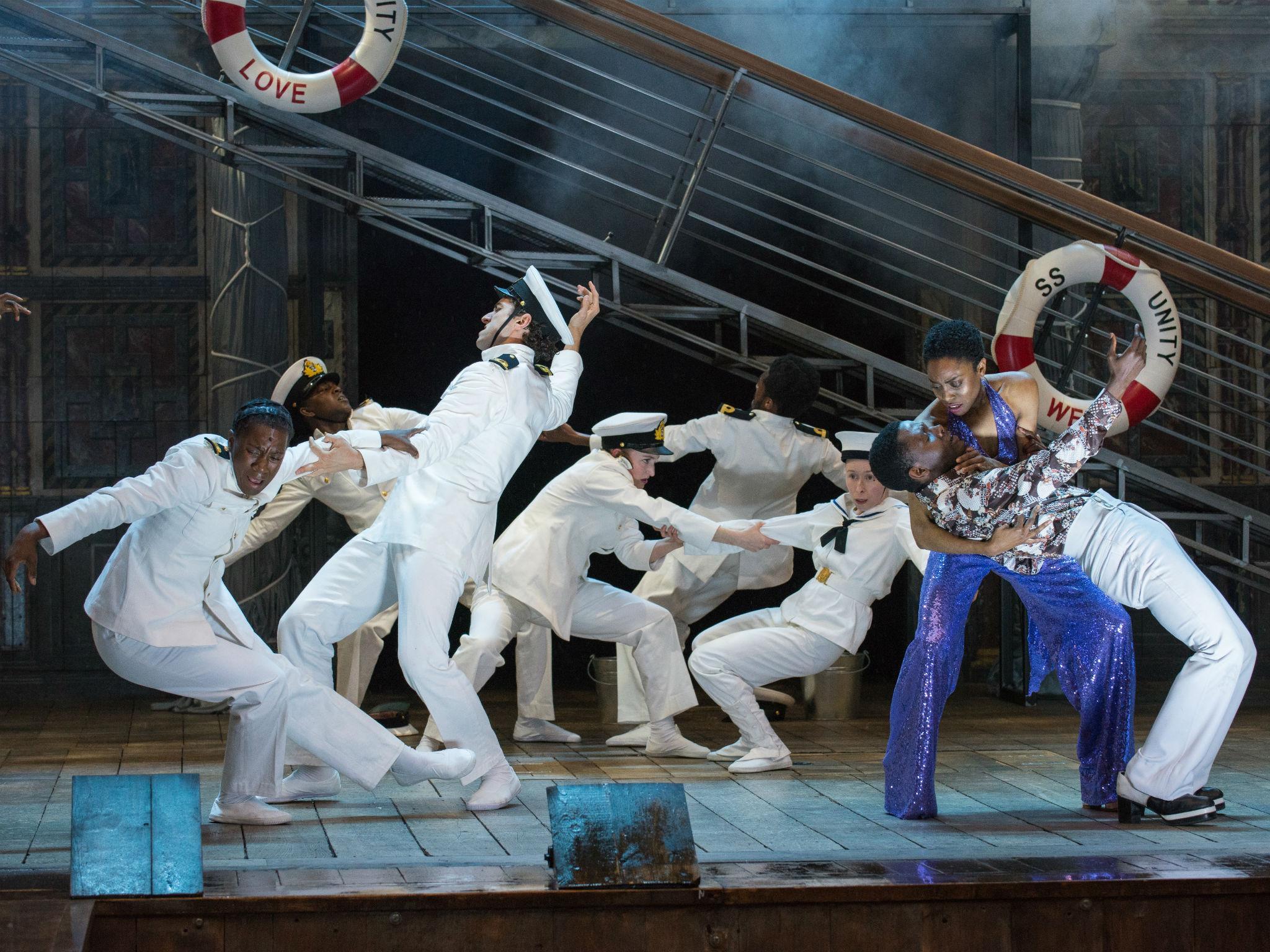Twelfth Night, Shakespeare's Globe, London, review: Gleefully defiant irreverence is the prevailing mood from the outset
The Globe's production of ‘Twelfth Night’ is part of Emma Rice’s Summer of Love season but it lacks emotional depth

Your support helps us to tell the story
From reproductive rights to climate change to Big Tech, The Independent is on the ground when the story is developing. Whether it's investigating the financials of Elon Musk's pro-Trump PAC or producing our latest documentary, 'The A Word', which shines a light on the American women fighting for reproductive rights, we know how important it is to parse out the facts from the messaging.
At such a critical moment in US history, we need reporters on the ground. Your donation allows us to keep sending journalists to speak to both sides of the story.
The Independent is trusted by Americans across the entire political spectrum. And unlike many other quality news outlets, we choose not to lock Americans out of our reporting and analysis with paywalls. We believe quality journalism should be available to everyone, paid for by those who can afford it.
Your support makes all the difference.Emma Rice's valedictory “Summer of Love” season at the Globe got off to a controversial start with Daniel Kramer's determinedly anti-traditionalist Romeo and Juliet in which the Capulets' ball resounds to a communal rendition of the Village People’s “YMCA”.
Her own production of Twelfth Night confirms that the outgoing artistic director is in no mood for compromise with the forces that were determined that this would be her second and last year in the top job here.
Gleefully defiant irreverence is the prevailing mood in her revival right from the outset – an added prologue, set on the SS Unity, which sees the company in their dazzling white sailor uniforms euphorically strutting their stuff to “We Are Family” by Sister Sledge.
There's a camp collision between “The Navy Lark” and “Monarch of the Glen” when this pleasure cruiser is shipwrecked off the coast of a remote, cod-Scottish Illyria (all kilts, outsize sporrans and mad Highland flings). Orsino sports a Lionel Richie-style mullet – his narcissistic, would-be wasted-rocker posturings and lunatic launches into a Celtic jig amusingly captured by Joshua Lacey.
We're in 1979, by the way: disco, punk and prog rock (as well as Scottish folk and tango) are referenced in Ian Ross's eclectic score which is performed by a band up in the gallery. So amply does the production heed Orsino's directive, “If music be the food of love, play on”, that the show could be retitled “Twelfth Night: The Musical”.
It revels in the very features that helped to bring about Rice's rejection – hot flushes of coloured lighting and cheeky interpolations to the text (credited here to Carl Grose). “Don't stroke me with a balloon. I've an allergy to latex,” protests Katy Owen's Malvolio – a diminutive Welsh windbag with a piercing referee's whistle – when Viola/Cesario (Anita-Joy Uwajeh) arrives with tactless presents from her master for the grieving Olivia.
The cast perform with terrific gusto and such an infectious delight in the farcical side of the proceedings that the audience has a ball. Marc Antolin's Aguecheek (so camp and cowardly he'd make John Inman look indecently butch) and Tony Jayawardena as a golfing, tartan-kilt-wearing Sir Toby form a strong double act, while Carly Bawden is particularly good as a witty, implacable Maria.
What's missing is any real recognition of the emotional depth and haunting strangeness of this play. There's nothing elusive or frisson-inducing about the gender confusions, which are mostly played as knockabout, and the show is never still enough to sound a note of wonder or probing uncertainty.
There's a lot of choreographed movement (routines in which the company lurch forward and arch back like relapsing waves) and there are sequences – such as the charged recognition scene between the twins and the subtle last-minute adjustment to Malvolio's characterisation – that would have far more impact if we weren't prematurely distracted by another dance.
The presiding spirit is cabaret star Le Gateau Chocolat, who wears a dazzling golden kaftan and sings in a resonant bass-baritone as a bearded drag Feste. He's a mighty presence, especially when he dons a nun's costume and becomes Sister Topas for the scene of tormenting Malvolio. This is a characteristically bold and cock-snooking production but one that only succeeds in bringing out some of the riches of the play.
Join our commenting forum
Join thought-provoking conversations, follow other Independent readers and see their replies
Comments